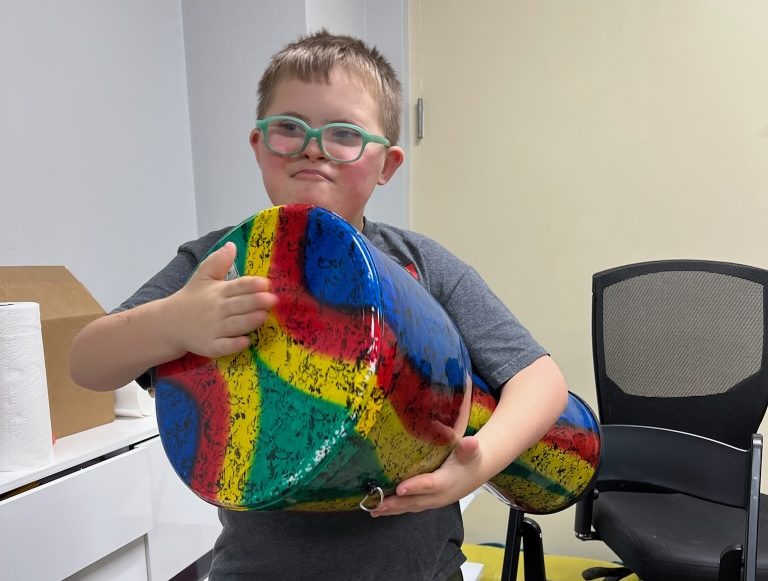By Jenna Somers

Autumn Kujawa, assistant professor of psychology and human development at Vanderbilt Peabody College of education and human development, has received a five-year, $3.7 million grant from the National Institute of Mental Health for a study to identify objective predictors of future suicidal behavior in high-risk adolescents. The study could improve understanding of the pathways to suicidal behavior in young people, help to identify those at greatest risk for suicide attempts, and lead to personalized interventions to prevent suicidal behavior and suicide deaths.
According to Kujawa, this study is the first to examine neural predictors of future suicidal behavior in a large, high-risk sample of youth and will build on another study of hers—supported by the Brain and Behavior Research Foundation (BBRF)—that was the among the first to examine the use of neural markers of suicidal behavior in adolescents.
Kujawa’s studies come at a time when adolescents’ risk for depression and suicidal behaviors has been steadily increasing. Earlier this year, the Centers for Disease Control and Prevention reported that 57 percent of U.S. teen girls felt persistently sad or hopeless in 2021, up from 36 percent in 2011.
“Increases in sadness and hopelessness can be associated with suicidal thoughts and behaviors, but we lack objective, prospective predictors of suicidal behavior to better identify and support youth at greatest risk,” Kujawa said. “Our project will take a new approach to identifying risk factors for suicidality, with the goal of improving methods for recognizing at-risk youth and personalizing approaches to early intervention and prevention.”
Kujawa is collaborating on this study with Sun-Joo Cho, professor of psychology and human development at Peabody College; Alexandra Bettis and Meg Benningfield, assistant and associate professors of psychiatry and behavioral sciences, respectively, at Vanderbilt University Medical Center; Richard Liu, an associate professor at Harvard Medical School; and Anna Weinberg, an associate professor in the Department of Psychology at McGill University.
The team seeks to characterize changes in neural processes that are associated with responses to positive motivational situations, particularly neural processes involved in reward valuation. Prior research and preliminary data, including from Kujawa’s BBRF-supported study, suggest that adolescents who exhibit suicidal behavior have heightened neural responses to immediate rewards, rather than delayed rewards, and these responses may be heightened during times of increased stress. In the case of suicidal behavior, this could manifest as choosing immediate relief from emotional pain rather than waiting for future rewards of improved quality of life. The team will test a model for understanding suicidal behavior in which youth who exhibit enhanced neural responses to immediate rewards and blunted responses to delayed rewards are more likely to engage in suicidal behavior—especially during periods of acute interpersonal stress—and that social support reduces the effect of reward valuation on suicidal behavior.
“We are excited for the clinical translational potential of this work,” said Bettis. “It is still a big challenge to identify which teens among those who we know are at highest risk will go on to attempt suicide. I am excited for the opportunity to support a project that could move the field of psychiatry closer towards identifying who is at risk so we can have more opportunities to intervene and prevent suicide.”
The researchers will recruit 300 adolescents who are in acute psychiatric treatment at VUMC for self-injurious thoughts and behaviors and follow them over the course of six months. Prior to hospital discharge, participants will complete clinical assessments as well as neural and behavioral measures of reward valuation using EEG. During the first 90 days following discharge, they will complete a daily survey on interpersonal stress, social support, and self-injurious thoughts and behaviors. At six months, the participants will be interviewed on self-injurious thoughts and behaviors to test prospective predictors of later suicidal behavior.


